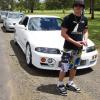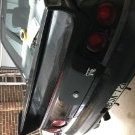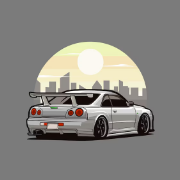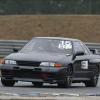Upgrading Rotors And Pads - Opinions Needed
Announcements
-
Similar Content
-
Latest Posts
-
By davemoto63 · Posted
Just bought a 2002 Stagea 250tRS VR-X Four AERO VQ25DET and spent the last two weekends cleaning and detailing it.. still have to do the wheels and the engine bay but the rest of it came up nice. Imported 2011 to S.A. and I'm the third owner since it was imported. I met the guy who brought it over, he went to Japan and picked out the car, bought it and ordered the wheels. He also gave me a list of stuff he did to the car with receipts. Coil overs (I have the original springs), 3" exhaust from the dump pipe back no cat, Custom dump pipe,(I have the original exhaust), Plenum spacer, 18" custom Work XSA wheels (need restoring, I've made a start..), Shift kit put through the 5 speed tiptronic auto, TV and menus/screens changed to english, Australian DTV tuner installed in rear. I've just had four new discs and new pads as well as all the fluids including the brake fluid replaced. I have all the receipts for the last 15 years and the import papers in a nice folder. Car looks great, goes like hell but fuel economy is not a thing lol.. pics next.. -
I ended up in this rut again lol, and used a shit ton of filler. One thing I can't understand is, even after using a big long block and going in long X pattern strokes, I always end up at bare metal again with no filler, and my repair started at one end of the door and now I've chased my tail to almost the other end of the door. I was thinking of hitting the panel with a hammer where it might be a high spot and making everything low then filling it, I did this on a small section on my other door by mistake and I think I fixed it lol. Is this a bad idea? The other thing is with guidecoat, whether it's the powder or spray, after I sand all the guide coat off, it doesn't reveal anything for me in terms of high spots and low spots and makes it especially hard when it's bare metal (at least in powdered form), am I doing something wrong here, or likely a high spot I keep going over and creating valleys? Lastly, stupid question but, is it possible that after sanding if I only sand over the filler area where I know to be a dent that it's impossible for me to dig into that dent? Unless there are other problems which I missed.
-
Yeah the rule of thumb with an LS is 7psi per 1000rpm. That is decidedly not enough at 6800rpm. I mainly looked for the scenarios where knock started to be picked up and it was later in the session when things were hotter, and oil was thinner, and the pressure was lower than it should be. (i.e very horrible). I am hoping with thicker oil (I was running Penrite ten tenths 10-40, the manual specifies 10-30) that does not leak that it's much improved at that time!!! I am using Project Mu Club Racer CR pads. I'm also using the Project Mu 335C fluid. The symptoms imply that it was fluid that boiled, but no bubbles seemed pretty weird to me when I bled it today. I want to try Castrol SRF as it has a much higher wet temp but, well, I have new Project Mu fluid lol... so I should at least use that. The pedal on track was really noticable. It went from basically normal feeling to instantly near-floor. The car did pull up as before, it was just very much nearly at the floor before the brakes engaged. At that point I pretty much decided the day was very done, it did *kinda* come back during that very slow cooldown lap into the pits. Felt perfectly fine driving home.









Recommended Posts
Create an account or sign in to comment
You need to be a member in order to leave a comment
Create an account
Sign up for a new account in our community. It's easy!
Register a new accountSign in
Already have an account? Sign in here.
Sign In Now